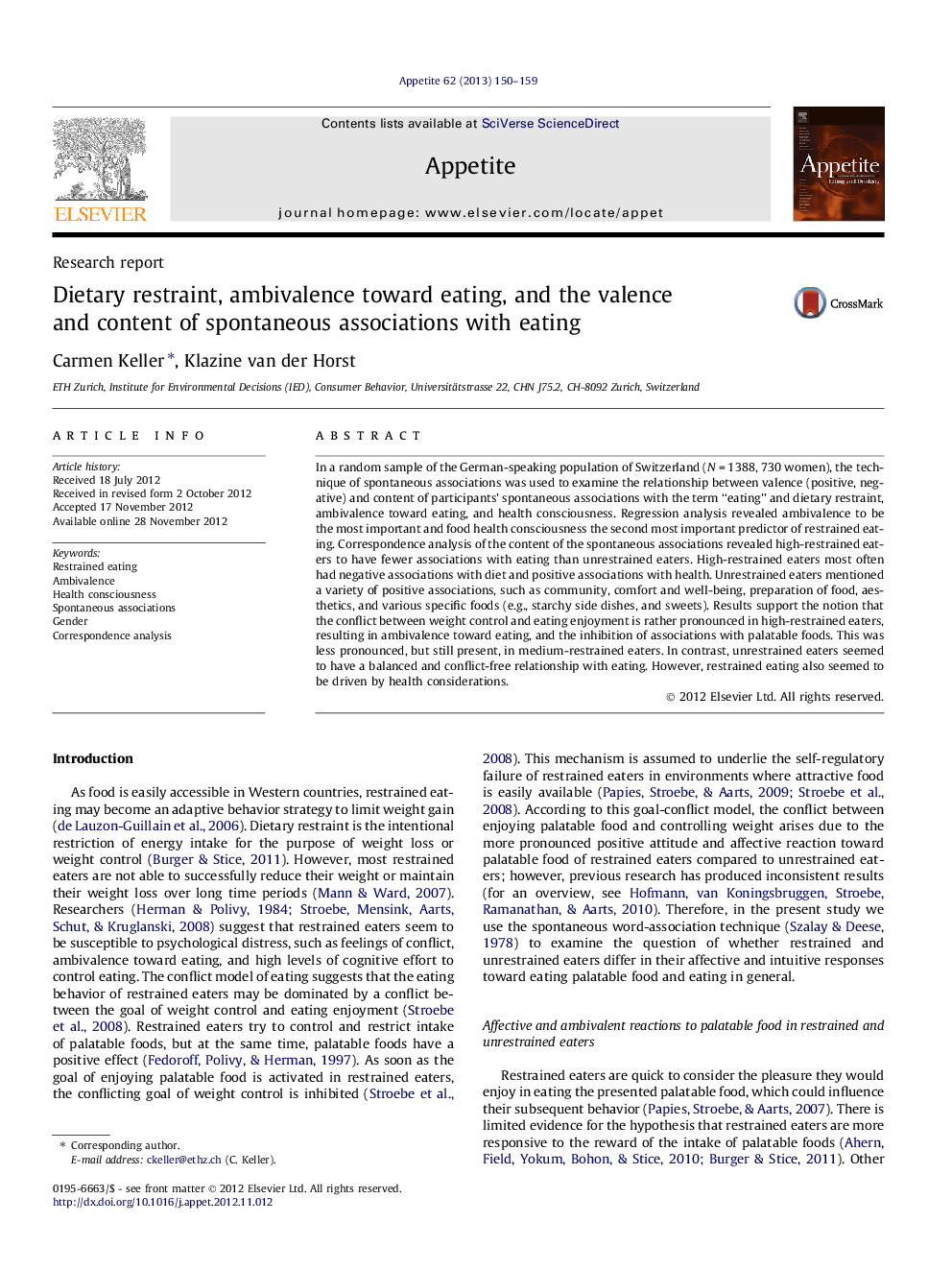| کد مقاله | کد نشریه | سال انتشار | مقاله انگلیسی | نسخه تمام متن |
|---|---|---|---|---|
| 939812 | 1475418 | 2013 | 10 صفحه PDF | دانلود رایگان |

In a random sample of the German-speaking population of Switzerland (N = 1388, 730 women), the technique of spontaneous associations was used to examine the relationship between valence (positive, negative) and content of participants’ spontaneous associations with the term “eating” and dietary restraint, ambivalence toward eating, and health consciousness. Regression analysis revealed ambivalence to be the most important and food health consciousness the second most important predictor of restrained eating. Correspondence analysis of the content of the spontaneous associations revealed high-restrained eaters to have fewer associations with eating than unrestrained eaters. High-restrained eaters most often had negative associations with diet and positive associations with health. Unrestrained eaters mentioned a variety of positive associations, such as community, comfort and well-being, preparation of food, aesthetics, and various specific foods (e.g., starchy side dishes, and sweets). Results support the notion that the conflict between weight control and eating enjoyment is rather pronounced in high-restrained eaters, resulting in ambivalence toward eating, and the inhibition of associations with palatable foods. This was less pronounced, but still present, in medium-restrained eaters. In contrast, unrestrained eaters seemed to have a balanced and conflict-free relationship with eating. However, restrained eating also seemed to be driven by health considerations.
• Restrained eating is determined by ambivalence toward eating and health awareness.
• Restrained eaters associate eating negatively with diet and positively with health.
• Unrestrained eaters associate eating positively with well-being and palatable foods.
• In restrained eaters the goal conflict results in inhibition of palatable food.
• Unrestrained eaters have a balanced and conflict-free relationship with eating.
Journal: Appetite - Volume 62, 1 March 2013, Pages 150–159